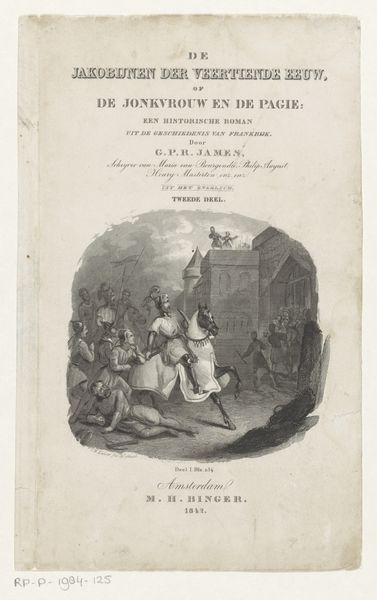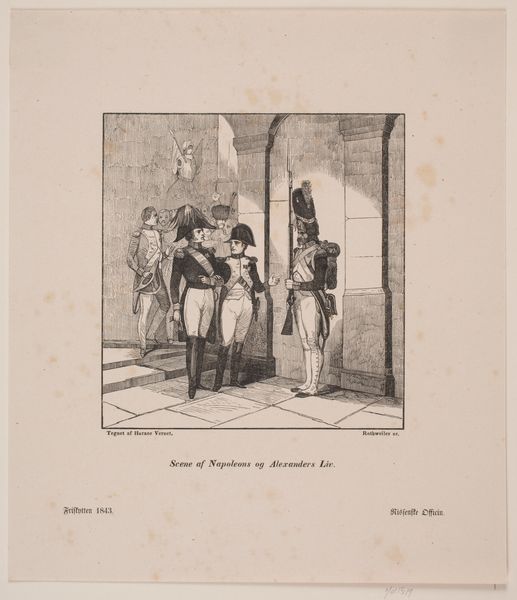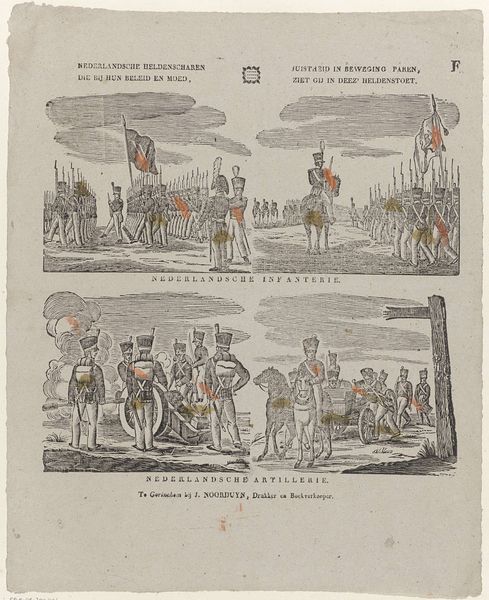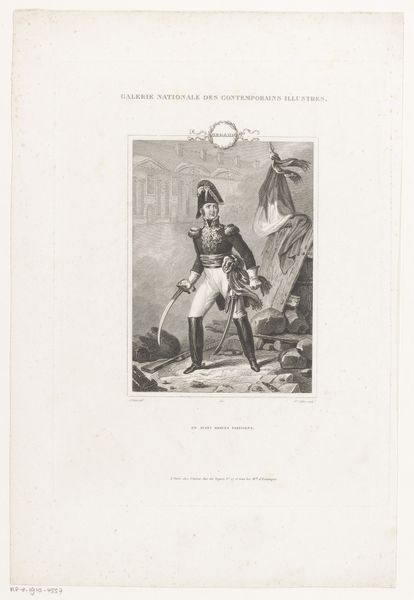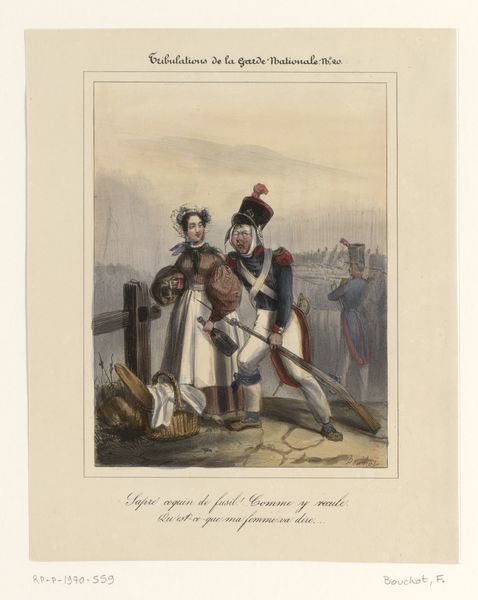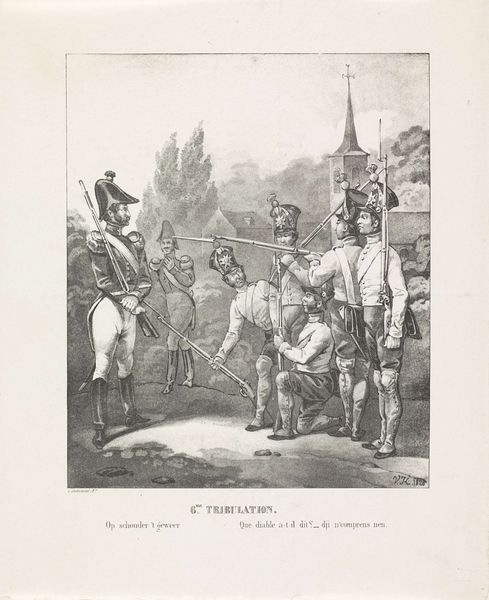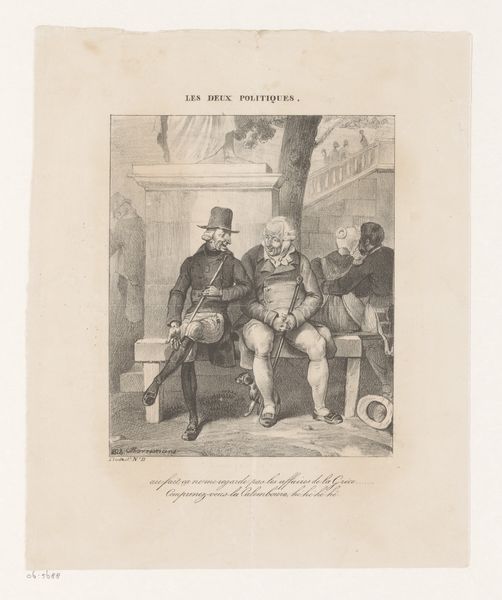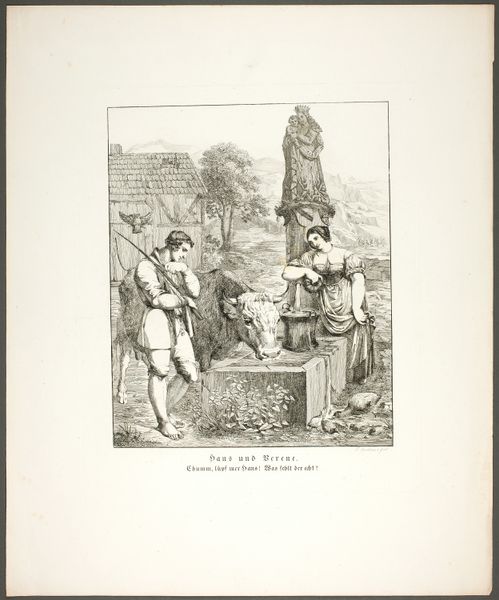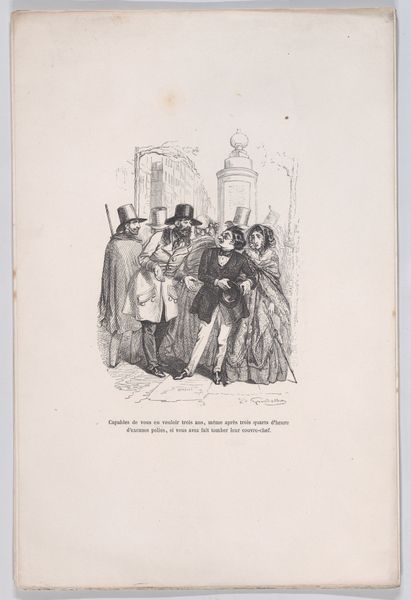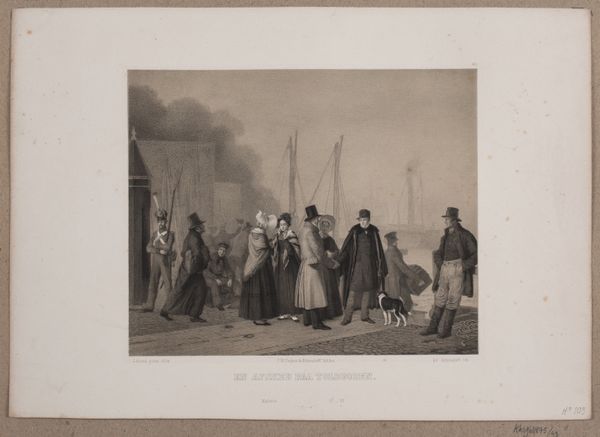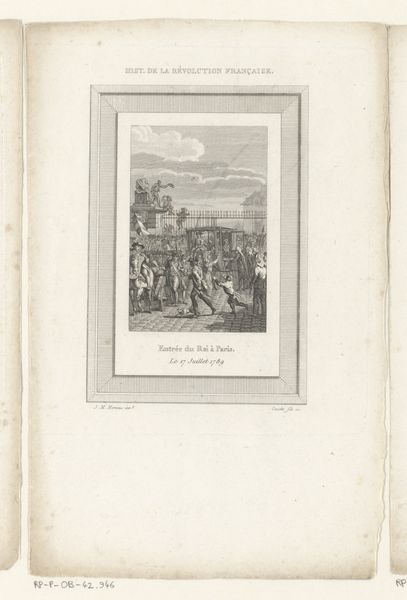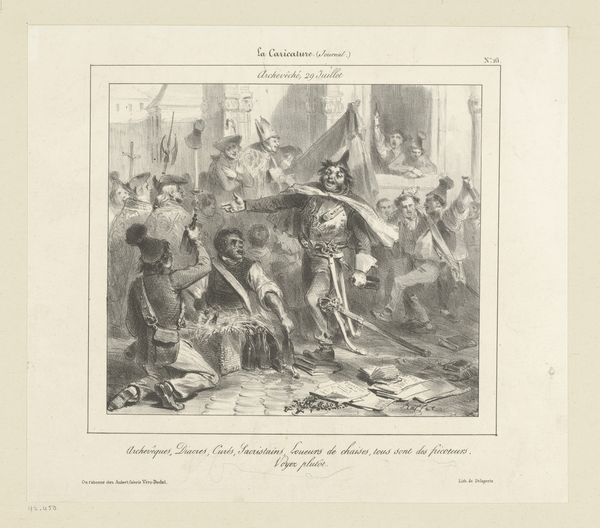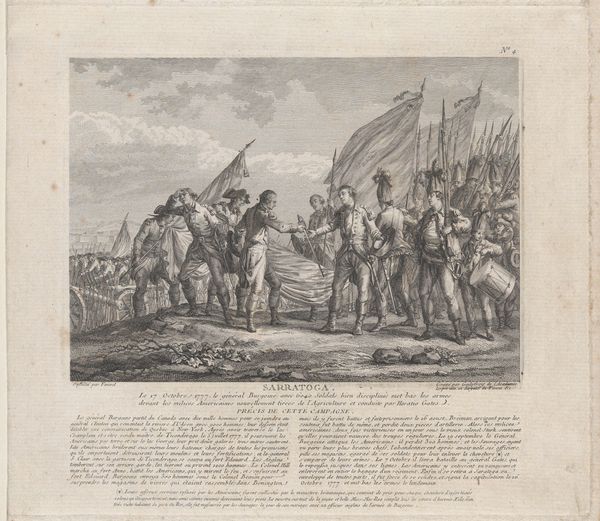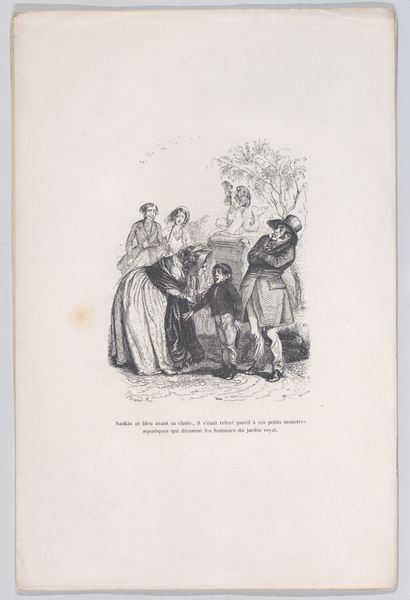
Title Page for A.D. van Buren Schele's "Adolf van Gelder", Amsterdam, 1842 c. 1842
0:00
0:00
print, engraving
#
aged paper
#
toned paper
#
16_19th-century
# print
#
19th century
#
history-painting
#
engraving
#
historical font
Copyright: National Gallery of Art: CC0 1.0
Curator: Here we have the title page for "Adolf van Gelder," a work by Dirk Jurriaan Sluyter, around 1842. It's an engraving, so a print. Editor: It has the quiet menace of a fever dream, all moonlight and sharp edges. The castle lurking in the background is especially unsettling. Curator: Right, the book was written by A.D. van Buren Schele, so this engraving really functions as a point of entry. And I think that, aesthetically, these illustrations provided readers in the 19th century a key to understanding their own history. The image evokes, perhaps, the tensions of the time it depicts, filtered through the lens of early 19th-century Dutch nationalism. Editor: History plays, like good paintings, I suppose, depend on stagecraft as much as accuracy. Take the costumes, for example. This detail adds drama but might not necessarily represent what people were really wearing during that period. Curator: Indeed. Such images are more than simple illustrations, functioning within specific socio-cultural and economic systems. Reproductions such as this helped disseminate both the stories they visually summarized and specific political viewpoints, embedding them deeper into the public consciousness. Editor: Thinking about the public… This style of engraving almost feels…democratic? In a way that, say, a grand oil painting for a noble family isn't. It made the historical narrative available to a broader audience, albeit an audience that was still overwhelmingly literate and relatively well-off. Curator: Exactly. This print speaks volumes about how art could democratize historical narratives. It certainly complicates any idea of a singular “Dutch” history and makes me wonder what kind of debates this story stirred up at the time of its release. Editor: All that intensity crammed onto a single page! Still, if I was wandering through a darkened library and stumbled across this, I think I’d keep my distance. Curator: Absolutely! But let's remember that this haunting image also offers invaluable insights into 19th-century historical and artistic sensibilities. Editor: Haunting...Sensibilities...What a combination.
Comments
No comments
Be the first to comment and join the conversation on the ultimate creative platform.
